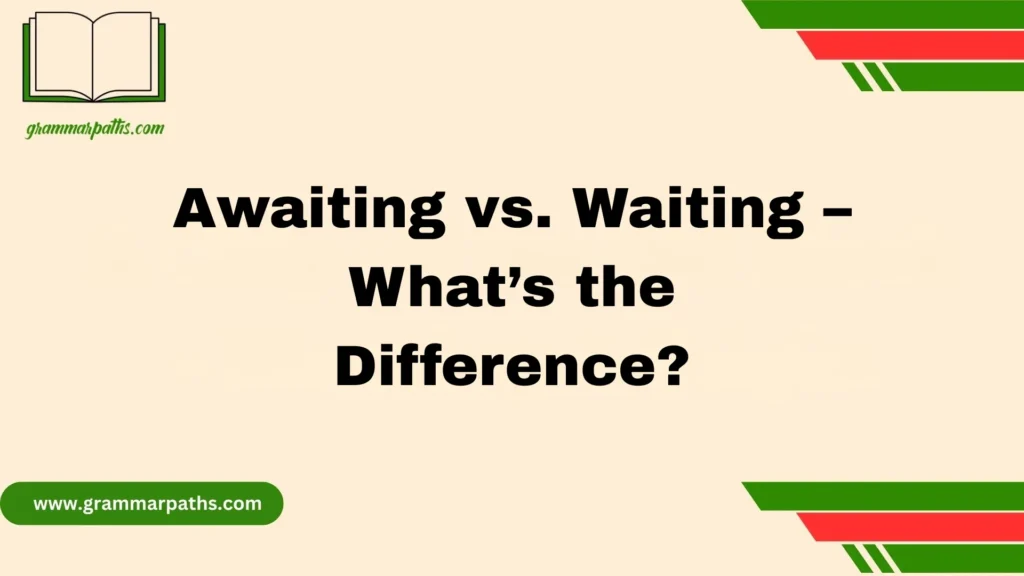When learning or using English grammar, many people often wonder, “Is it correct to say…” before writing or speaking a sentence. This question comes up when there’s confusion about sentence structure, word choice, or pronunciation. Whether you are a native speaker or learning English as a second language, knowing the right way to phrase a sentence is essential for clear communication.
The phrase “Is it correct to say” is commonly used in language learning, formal writing, and professional communication to confirm the accuracy of a statement. It helps in checking grammatical correctness, spelling, and appropriate vocabulary usage. For example, you might ask, “Is it correct to say ‘I look forward to meet you’?” The proper version would be, “I look forward to meeting you.”
In English usage, small mistakes in verb tense, prepositions, or word order can completely change the meaning of a sentence. This is why many students, writers, and professionals seek clarification before finalizing their message. Understanding the right context and common expressions can greatly improve your writing skills and spoken English. Asking “Is it correct to say…” is the first step toward speaking and writing with confidence.
Introduction: Why “How Was Your Night?” Deserves a Closer Look
You’ve heard it a thousand times: someone greets you with “How was your night?” It feels routine. Yet, that tiny phrase can shape how a conversation opens. Does it sound caring? Weird? Too personal at 8 AM? Language isn’t neutral—even casual stuff matters.
Think about it: after a late-night party, that question means something different than when someone asks in front of coworkers. Getting it right helps you connect, not stumble. That’s why we’ll examine everything—from literal meaning to culture, tone, alternatives, and responses.
Breaking Down the Phrase “How Was Your Night?”
At face value, it means: How did your night go? But nuance sneaks in fast.
- Literal meaning: Inquiry into events or wellness during the night.
- Implied meaning: Could be courtesy (“Hope you slept okay”) or curiosity (“Tell me what you did”).
- Influencers:
- Tone: A gentle “How was your night?” (warm, caring) vs. curt (“How was your night.”) (aloof).
- Timing: First thing in the morning? Follow-up after an event? Same words, different vibes.
- Relationship closeness: With someone close, it’s genuine. With an acquaintance, it might feel odd or probing.
Table: Factors That Turn the Phrase Warm or Weird
| Factor | Warm Interpretation | Could Feel Awkward |
| Tone | Gentle, friendly, soft | Flat, rushed, or blunt |
| Relation | Close friend, romantic partner | Colleague, new acquaintance, service staff |
| Timing | Right after late-night conversation | Mid-morning, before coffee kicks in |
| Context | After a fun event or rough night | After no event—just out of context |
Social and Cultural Implications
This phrase doesn’t land the same everywhere. Culture, social norms, and context shape how personal this feels.
Cultural Sensitivity & Boundaries
- In North America, it’s mostly harmless. People chat about evenings casually: dinner, work, or sleep.
- In East Asia, that level of familiarity may come off as overly personal. “How did you rest?” might be softer.
- In Middle Eastern contexts, nighttime can be sensitive—especially for young women or if they were out and about. Asking “How was your night?” could feel intrusive or judgmental.
Why Context Counts
Case Study: Work Dinner Follow-Up
- In the U.S., asking “How was your night?” to a coworker after a team dinner can show friendly interest.
- In Japan, a polite “I hope the evening went well?” is more fitting—less direct, more distance.
Situational Usage: When It Works—and When It Doesn’t
Casual Settings
Friends, Family, Romantic Partners
- You wake someone gently: “How was your night, sleepyhead?”
- It’s common after staying over without thinking twice.
Professional Settings
Colleagues, Clients, Bosses
- Risk zone: may assume someone partied, slept weird, or skipped work.
- Better: “Good morning. Hope your evening was restful?”—neutral, respectful, professional.
Service Encounters
Hotel front desk, healthcare, hospitality
- Too personal, unless they’ve just come from a known overnight ordeal (e.g., hospital).
- Safer: “Did you get a good rest last night?”—less assuming, more considerate.
Special Contexts
After a big event, travel, or rough night
- Cruise passengers: “How was your night aboard?” connects.
- New mom after a midnight feeding: “Tough night?” shows empathy—not judgment.
Politeness and Appropriateness: Best Practices
Knowing when “How was your night?” fits—and when to swap it—is gold.
When It’s Appropriate
- You know they were out: party, date, event.
- Close relationships: family, best friends, partners.
- Informal settings: relaxed mornings, home, casual texts.
When It Feels Off
- Work or formal situations: tone might read casual or intrusive.
- Without context: the person could wonder, “Why ask?”
- Cultural mismatch: in groups valuing formality or privacy.
Smart Alternatives to “How Was Your Night?”
When in doubt, tweak your greeting for better fit.
| Situation | Alternative Phrasing | Why It Works |
| Friendly catch-up | “Did last night treat you well?” | Casual, upbeat, not invasive |
| Professional environment | “Hope you had a restful evening.” | Polite, neutral, thoughtful |
| After event or trip | “How did you enjoy the evening/event?” | Context-specific, invites sharing |
| Checking on wellness | “Did you manage to get some rest?” | Gentle, caring, non-assuming |
| First greeting of the day | “Good morning! Hope your evening went smoothly.” | Warm, yet formal-enough |
How to Respond When Someone Asks You “How Was Your Night?”
You don’t always feel like sharing an epic story—or sometimes you do. Here’s how to navigate responses fluidly.
Brief and Polite
- “Thanks, it was okay—slept well.”
- Perfect when you’re still half-awake or at work.
Friendly and Engaging
- “Honestly? That sunset hike just made everything better.”
- Great with friends or after a notable experience.
Vague But Pleasant
- “Pretty low-key, just relaxed.”
- Keeps it light and neutral.
Reading Hooded Cues
Pay attention to tone, posture, and setting.
- Warm tone + smile? They’re asking out of interest—feel free to share a detail.
- Rushed or neutral? They may be being polite—short, simple answer works.
Cross-Cultural Lens: How “How Was Your Night?” Varies Globally
Even subtle tweaks can make the phrase land better—or worse—across regions.
North America
- Casual, frequent, often follows a social night or event.
- Mostly harmless and accepted.
Western Europe
- Similar to North America, though less common at work.
- Better with “How was your evening?”—slightly more formal.
East Asia (Japan, Korea)
- People avoid assuming nighttime activity.
- Use softened expressions like “Hope you rested well.”
South Asia (e.g. Pakistan, India)
- Asking neighbors “How was your night?” after local events is courteous.
- Just don’t assume: focus on rest, not events.
Middle East
- Night can imply nightlife; not always a polite topic.
- Stick with “Hope your evening was peaceful.”
Key Takeaways: When You Should—and Shouldn’t—Say “How Was Your Night?”
- It’s correct grammatically. The real question is is it appropriate?
- Use it when:
- You know they had an event or late-night activity.
- You’re in a relaxed, personal setting.
- Your tone is warm.
- Avoid it when:
- You’re in a formal or professional context.
- You don’t know what their night entailed.
- Cultural norms favor privacy or formality.
Conclusion
Asking “Is it correct to say…” is not just a habit—it’s a smart way to ensure grammatical accuracy and clear communication. Whether you are learning English grammar, improving your writing skills, or trying to sound professional, this phrase helps you check the correctness of a sentence before using it. Remember, even small mistakes in word order, verb tense, or prepositions can change the meaning of what you say or write. By making it a habit to confirm sentence correctness, you will build confidence in both spoken English and written English. In short, knowing when and how to use “Is it correct to say” can make your communication more effective and polished.
FAQs
1. What does “Is it correct to say” mean?
It’s a phrase used to check if a sentence is grammatically correct or appropriate in a given context.
2. Can I use “Is it correct to say” in formal writing?
Yes. It’s commonly used in language discussions, academic writing, and professional communication.
3. Is it only for grammar?
No. It can also be used to confirm pronunciation, word choice, or idiomatic expressions.
4. What is a better alternative to “Is it correct to say”?
You can use phrases like “Is this the right way to say…” or “Is this grammatically correct?”

Mia Rose is the passionate writer and founder of GrammarPaths.com, a resource dedicated to helping learners master English grammar, idioms, and writing skills with ease. With a deep love for language and years of experience in teaching and content creation, Mia simplifies complex grammar rules into clear, practical guides that readers can instantly apply.










